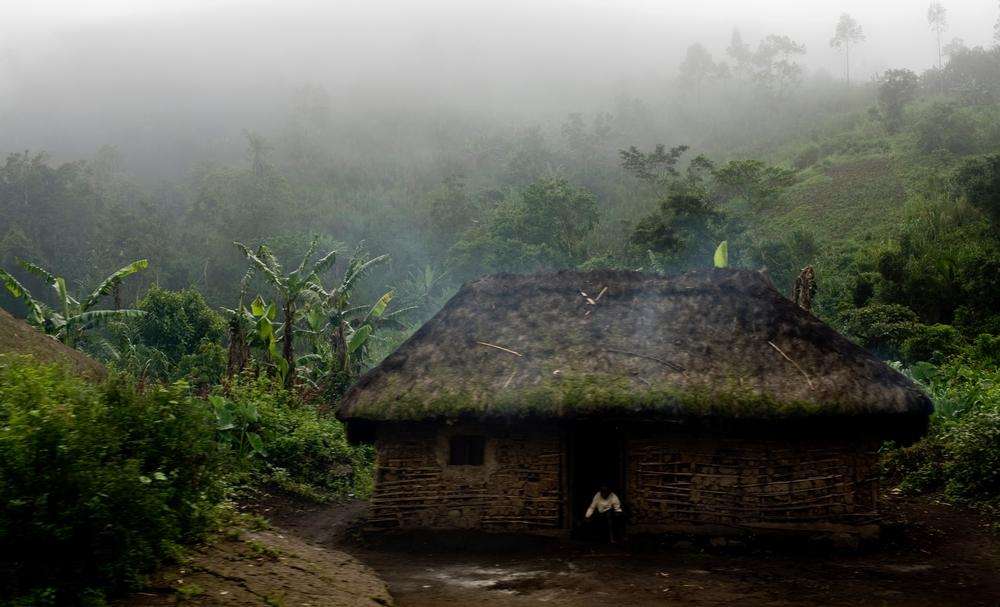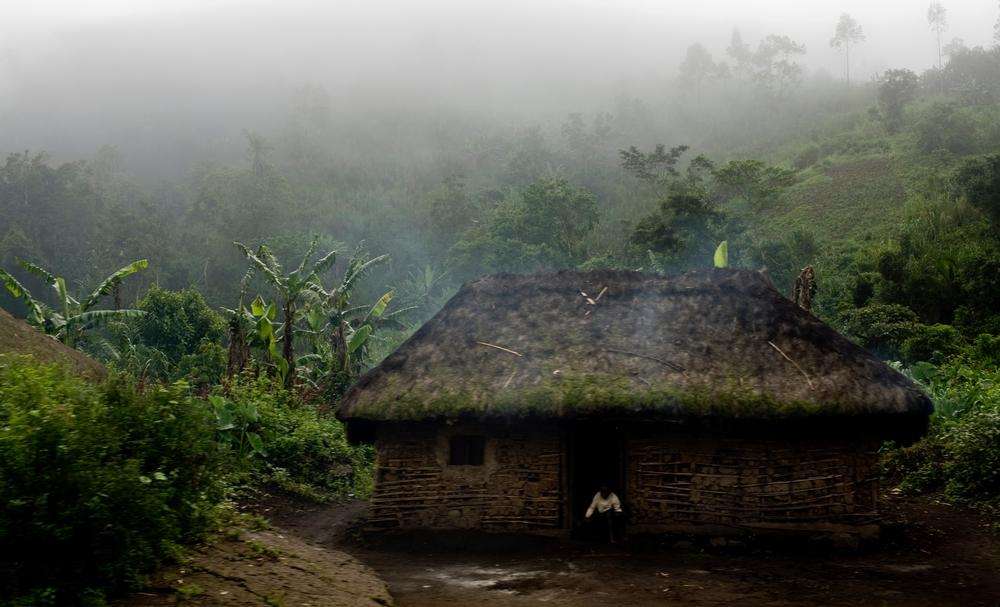“The situation in the region is extremely volatile and dire as tension between communities escalates, with more shooting taking place this week in Kitchanga,” says Hugues Robert, head of mission for Doctors Without Borders/Médecins Sans Frontières (MSF) in North Kivu Province.
More houses in central Kitchanga were damaged by fire in a second wave of attacks last Monday. Many homes and other buildings have already been destroyed, including the MSF office. Shelling also struck the hospital of St. Benoit last week, killing two people and wounding eight.
Within the city, thousands of displaced people lack shelter and food and are exposed to the cold, especially at night. “With the rainy season, there is an increased risk for various disease outbreaks, such as cholera and pneumonia,” says Corry Kik, MSF medical coordinator.
MSF’s Congolese national staff is working around the clock in the hospital, supporting their colleagues from the Ministry of Health. So far, more than 140 people have been wounded and there are reports of over 85 civilian deaths. Sixty-five wounded are being tended to in Kitchanga’s health facility, while 55 of the most severely wounded patients were transferred either by helicopter to Goma after being stabilized in Kitchanga or by road to Mweso hospital, where MSF has a surgical team. Currently MSF is the only medical humanitarian organization working in the town of 150,000 and the greater Kitchanga catchment area.
MSF is scaling up its activities and adding to its team in response to the violence. Last week a surgeon, anesthetist, nurse, and emergency logistician were sent by helicopter to Kitchanga. This week, another two doctors and ten nurses will join the medical team on the ground.
MSF calls upon all parties to respect the neutrality of health facilities, staff, and property, and to ensure safe passage for the transport of wounded patients.
MSF provides primary and secondary health care throughout North Kivu Province. It operates health centers and mobile clinics and supports reference hospitals in Mweso, Pinga, Masisi, Rutshuru, and Kitchanga. It also operates cholera treatment centers in and around Goma. Emergency teams regularly evaluate and respond to needs in other areas in North Kivu.





